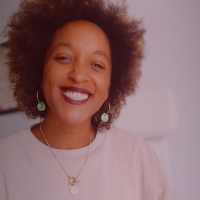‘They’re really quiet now’: Simone Biles addresses critics after winning third gold in Paris
https://t.co/RdkUL2m9El
— Sky News (@SkyNews) August 4, 2024
{*Did you know you can write on Elephant? Here’s how—big changes: How to Write & Make Money or at least Be of Benefit on Elephant. ~ Waylon}
~
I’m not really into the celebrity world, but if there’s one person who has always fascinated me, it’s Simone Biles.
I first started paying attention to her when she quit the Tokyo Olympics. I have to confess: when people are enraged about something, I get curious.
So, I did what every sane person would do: I googled the topic to exhaustion to try and get all sides.
After a few clicks, I only cared about one side, which was Simone’s—a young, extraordinary woman who quit the most famous competition on Earth to care for her mental health. I was amazed at her bravery.
In a world where sacrifice is glorified and suffering and hard work are the way to go, it was a breath of fresh air to see someone at this high level disrupt the status quo, especially knowing she is a survivor.
If you watch her two-part Netflix documentary, “Simone Biles: Rising,” you’ll learn that Biles is no stranger to trauma. She spent a portion of her early childhood years in the foster care system and is one of many victims of the sexual abuse that occurred in the gymnastics world when she was younger.
You see, as survivors, we’re more often than not made to believe we have to keep going like nothing happened and suck it up. We say we are fine, but that couldn’t be further from the truth.
As Biles said in her documentary, she thought she was fine—and then Tokyo happened.
She wasn’t “fine,” after all.
That’s the story of many survivors: we push our painful experience away and move on with our lives like nothing that serious ever happened to us until, eventually, something like a public meltdown, panic attacks, or illness makes us stop everything and face what we’ve experienced, so we can start healing.
For some of us, that moment never comes, or we ignore it because we think it will affect our lives negatively. We fear that if we stop, the world will crumble, and people will think we are weak, inconsiderate, or even a terrible, selfish person. And that was exactly what one side of the internet said about Biles when she quit.
The other side, fortunately, was extremely supportive, warm, and welcoming.
So many of us could relate to Biles. We’re not Olympians, but we all know how the constant pressure to perform at our highest when we are at our lowest feels.
That used to be me: trying to look my best when, internally, I was at my worst most of the time. And still showing up. Still “performing.” For a trauma survivor, that’s a recipe for disaster.
I never had time to stop. In reality, I was afraid to stop. I was trying so hard not to look at the past that I kept myself busy. There was always something to be done, something to achieve. I bought into the hustle mentality, and it was detrimental to my mental health.
Yes, I was achieving things like a great job and the guy I thought I was supposed to be in a relationship with (spoiler alert: I wasn’t), but I felt miserable and anxious all the time. Not to mention the absence of true fulfillment.
Eventually, I realized it wasn’t worth it and decided to invest in my mental health and emotional well-being, against my primal instincts. And surprise, surprise: I not only started to feel better but also transformed into this force that could achieve more and more. I was mindblown. I mean, it sounded counterintuitive but I was sold!
Better mental health, more rest, and achieving better results in life? Who doesn’t want that?
But there’s always that nagging voice that tells us we should be doing more, that we’ll never amount to anything if we keep taking time off, and that we better get going otherwise we will miss ‘”the opportunity train.” And I sometimes hear it, still.
Now, when I tell you this voice went quiet after I saw Biles compete at this year’s Olympics in France…I mean, that voice was embarrassed.
There she was, all sparkly, with a fierce attitude, doing her thing and winning gold, even though she took some time to heal, went to fewer trainings than before, and put more focus on what made her happy.
The world didn’t end for Simone when she started focusing on her mental health: it opened up.
I was in awe. And still am. I think everyone should be taking notes, but especially us, survivors. It’s okay to take time to heal. We can structure our lives in a way that serves our mental and emotional well-being.
What is meant for us will still be there.
~
{Please consider Boosting our authors’ articles in their first week to help them win Elephant’s Ecosystem so they can get paid and write more.}
~

 Share on bsky
Share on bsky






Read 5 comments and reply